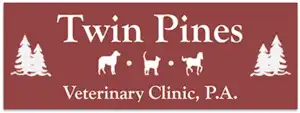Nationally Specially-Abled Pets Day

Special-Abled Pets Day is coming up on May 3rd. This is one cause that all animal lovers can unite behind. Many sweet and loving dogs and cats with disabilities—or rather, special abilities—are overlooked in shelters. That’s very sad, because they are just as cute, fun, and lovable as any other pet. A Sandstone, MN vet discusses specially-abled pets below.
Specially-Abled Pets: Who Are They?
Specially-abled pets are not afflicted with any one condition: it’s an umbrella term that covers any and all physical handicaps. This can mean anything from a pup with only one eye to a kitty who can’t hear to a poodle with three legs. There are about million specially-abled pets out there. We’d love to see all of them get adopted!
Resilience
One of the best things about our animal companions is the fact that they are remarkably resilient, and can bounce back from horrific experiences without losing the ability to love. Specially-abled pets are often particularly affectionate, simply because many of them are so desperate for love. Not only is adopting one of these guys a very special experience, it can actually be life-changing.
A Sad Plight
Many people automatically pass by specially-abled pets, often because they assume that Fluffy and Fido need a lot of extra care or will require expensive treatments and medication. That isn’t necessarily the case, though. For instance, a pup who has lost one eye may not need any more check ups than another pooch would, once he has healed. The main thing is to ask, and find out what Fido or Fluffy’s care needs will entail. As far as expense goes, you may find that some shelters will offer significant discounts for the pets that are not easily adopted. It never hurts to ask!
Tips For Adopting
Adopting any animal is a serious and lifelong commitment. That is definitely the case with specially-abled pets. Many of these guys are very happy and playful, and don’t seem to notice that they’re a bit different. However, there are things you may need to do a little differently. For instance, you may need to set out baby gates and carpet runners for a blind dog, or use hand signals to communicate with a deaf one. Ask your vet for specific advice.
Our Advice on Nationally Specially-Abled Pets Day in 2024
Why do specially-abled pets often get overlooked in shelters?
Specially-abled pets frequently get overlooked in shelters because many people assume these animals require extensive care, expensive treatments, or special accommodations. This misconception leads potential adopters to pass by these pets, favoring those without visible disabilities. However, many specially-abled pets adapt remarkably well to their conditions and do not always need more care than typical pets. Additionally, shelters may offer support and resources for adopting such pets, making their care manageable for many families. It’s essential to inquire about each pet’s specific needs to understand their care requirements better.
Are there any general tips for adopting and caring for specially-abled pets?
When adopting a specially-abled pet, it’s key to understand their unique needs. Adapt your home for their safety, like using baby gates for pets with mobility issues or carpet runners for those with vision impairment. Regular veterinary check-ups are crucial to monitor their health. Embrace adaptive communication methods, such as hand signals for deaf pets. Finally, patience and love are essential. These pets may require time to adjust, but they offer immense affection and resilience, showcasing that their abilities can far outweigh their disabilities.
What are some common home adjustments you might need to make for a specially-abled pet?
For a specially-abled pet, common home adjustments can significantly enhance their quality of life. Installing ramps or stairs can help pets with mobility issues navigate your home more easily. Non-slip flooring or runners can prevent slips for pets with balance problems. For visually impaired pets, maintaining a consistent layout and using scent markers can aid navigation. Elevated food and water dishes can assist pets with neck or back issues. Additionally, creating a safe, easily accessible rest area free from hazards ensures comfort and safety for your specially-abled companion.
What are some potential challenges of adopting a specially-abled pet that people should be prepared for?
Adopting a specially-abled pet can bring unique challenges, such as requiring more time for daily care, including feeding, grooming, and administering medications. Some may need special equipment like wheelchairs or ramps. Adjusting your home to ensure their safety and accessibility is often necessary. Potential medical expenses for ongoing conditions or therapies should also be considered. Emotionally, preparing for the possibility of increased veterinary visits and managing any specific behavioral needs related to their disability is important. Despite these challenges, the bond formed with a specially-abled pet can be incredibly rewarding.
How can you help children in the household understand and interact with a specially-abled pet?
Educating children about the specific needs and abilities of a specially-abled pet is crucial for fostering a safe and supportive environment. Explain the pet’s condition in an age-appropriate way, emphasizing empathy and respect for their limitations. Teach children how to gently interact with the pet, showing them suitable ways to play and care for them. Demonstrating daily care routines can also help children learn about responsibility and the special considerations needed. Encouraging questions and open conversations about the pet’s abilities will build understanding and a strong, compassionate bond between the children and the pet.
Do you have questions about your pet’s health or care? Contact us, your Sandstone, MN animal clinic, today!
